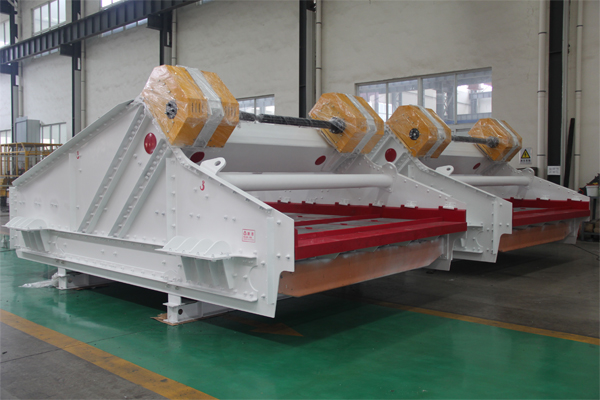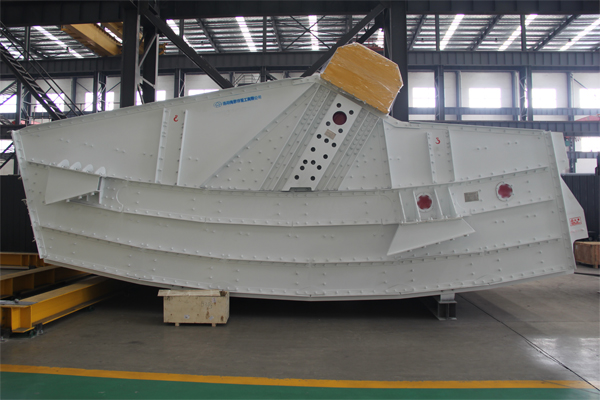A horizontal vibrating screen is a type of screening equipment used to separate particles according to their size, shape, or composition by passing them through a vibrating mesh or sieve. Unlike inclined vibrating screens, which have a slope at the feed end to facilitate material movement, horizontal vibrating screens have a flat or horizontal screening surface.
Features and components of a horizontal vibrating screen

Screening Surface: The screening surface of a horizontal vibrating screen is typically a flat or slightly inclined mesh or sieve bed. The screen may consist of woven wire mesh, perforated plate, polyurethane panels, or other materials designed to suit the specific application requirements.
Vibrating Mechanism: Horizontal vibrating screens are equipped with one or more vibratory motors or eccentric shafts that generate vibratory motion. These motors or shafts are mounted on the screen frame and produce linear or elliptical vibrations that cause the material on the screen surface to move and stratify.
Screen Deck(s): Horizontal vibrating screens may have single or multiple decks stacked on top of each other. Each deck contains a separate screening surface, allowing for the classification of multiple particle sizes simultaneously. The number of decks and their arrangement depend on the application and desired screening efficiency.

Feed Box: The feed box is located at the inlet end of the horizontal vibrating screen and distributes the incoming material evenly across the width of the screen. It may incorporate adjustable gates or deflectors to control the material flow and distribution onto the screen surface.
...
For more detailed information about the features of horizontal vibrating screens, please click here:https://www.hsd-industry.com/news/horizontal-vibrating-screen-features/